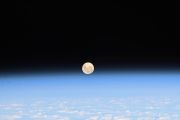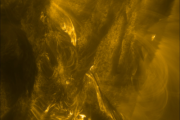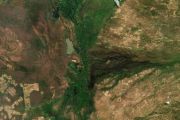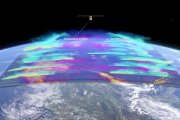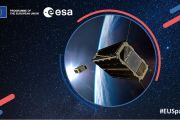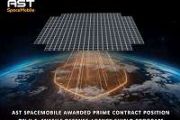
Copernical Team
World Environment Day: ESA supports shift to a greener world
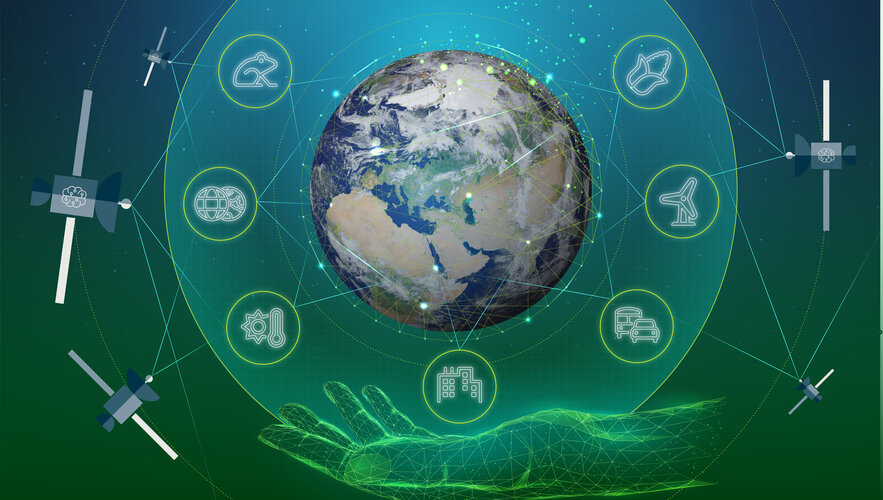
Celebrated each year on 5 June, World Environment Day focuses on awareness of environmental challenges and action to protect planet Earth. Take a look at five ESA-supported projects that use satellite data and services to address specific environmental problems.
Russia's supply ship arrives at International Space Station
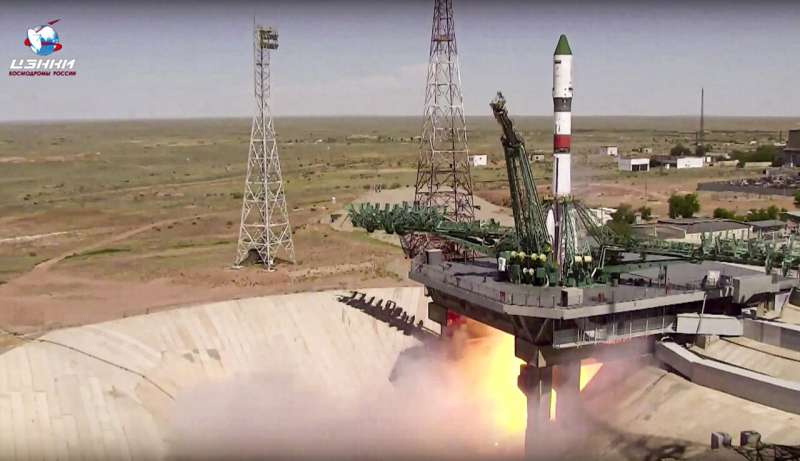
The consequences of climate change in the Alps are visible from space
 Global warming has a particularly pronounced impact on the Alpine region. Like the Arctic, this European mountain range is becoming greener. Writing in the journal Science, researchers from the University of Lausanne and the University of Basel have now used satellite data to show that vegetation above the tree line has increased in nearly 80% of the Alps. Snow cover is also decreasing, albeit s
Global warming has a particularly pronounced impact on the Alpine region. Like the Arctic, this European mountain range is becoming greener. Writing in the journal Science, researchers from the University of Lausanne and the University of Basel have now used satellite data to show that vegetation above the tree line has increased in nearly 80% of the Alps. Snow cover is also decreasing, albeit s China's newly-launched meteorological satellites put into trial operation
 Two meteorological satellites, along with their ground application systems, began trial operation on Monday, said the China Meteorological Administration.
The two satellites, Fengyun-3E (FY-3E) and Fengyun-4B (FY-4B), will provide observation data and application services to global users.
The FY-3E, launched on July 5, 2021, was the world's first meteorological satellite in early mor
Two meteorological satellites, along with their ground application systems, began trial operation on Monday, said the China Meteorological Administration.
The two satellites, Fengyun-3E (FY-3E) and Fengyun-4B (FY-4B), will provide observation data and application services to global users.
The FY-3E, launched on July 5, 2021, was the world's first meteorological satellite in early mor China launches nine Geely-01 satellites
 China on Thursday launched a Long March-2C carrier rocket to place a group of nine commercial satellites in space.
The Geely-01 constellation consisting of nine satellites were lifted at 12:00 p.m. (Beijing Time) from the Xichang Satellite Launch Center in southwest China's Sichuan Province and entered the preset orbit.
Owned by GeeSpace, a subsidiary of Geely Technology Group, the s
China on Thursday launched a Long March-2C carrier rocket to place a group of nine commercial satellites in space.
The Geely-01 constellation consisting of nine satellites were lifted at 12:00 p.m. (Beijing Time) from the Xichang Satellite Launch Center in southwest China's Sichuan Province and entered the preset orbit.
Owned by GeeSpace, a subsidiary of Geely Technology Group, the s Close encounter more than 10,000 years ago stirred up spirals in accretion disk
 Dr. LU Xing, an associate researcher from the Shanghai Astronomical Observatory (SHAO) of the Chinese Academy of Sciences, along with collaborators from Yunnan University, the Harvard-Smithsonian Center for Astrophysics, and the Max Planck Institute, have used high-resolution observational data from the Atacama Large Millimeter/submillimeter Array (ALMA) to discover a massive protostellar disk i
Dr. LU Xing, an associate researcher from the Shanghai Astronomical Observatory (SHAO) of the Chinese Academy of Sciences, along with collaborators from Yunnan University, the Harvard-Smithsonian Center for Astrophysics, and the Max Planck Institute, have used high-resolution observational data from the Atacama Large Millimeter/submillimeter Array (ALMA) to discover a massive protostellar disk i Algorithm simulates intergalactic medium of the Universe in seconds
 The Instituto de Astrofisica de Canarias (IAC) has led the development of a new numerical procedure that allows to reproduce in a few seconds with Big Data and machine learning techniques the intergalactic medium obtained from a cosmological simulation of 100,000 hours of computation. Thanks to this algorithm, called Hydro-BAM, researchers have been able to exploit the hierarchy in the relations
The Instituto de Astrofisica de Canarias (IAC) has led the development of a new numerical procedure that allows to reproduce in a few seconds with Big Data and machine learning techniques the intergalactic medium obtained from a cosmological simulation of 100,000 hours of computation. Thanks to this algorithm, called Hydro-BAM, researchers have been able to exploit the hierarchy in the relations NASA's DAVINCI Mission To Take the Plunge Through Massive Atmosphere of Venus
 In a recently published paper, NASA scientists and engineers give new details about the agency's Deep Atmosphere Venus Investigation of Noble gases, Chemistry, and Imaging (DAVINCI) mission, which will descend through the layered Venus atmosphere to the surface of the planet in mid-2031. DAVINCI is the first mission to study Venus using both spacecraft flybys and a descent probe.
DAVINCI,
In a recently published paper, NASA scientists and engineers give new details about the agency's Deep Atmosphere Venus Investigation of Noble gases, Chemistry, and Imaging (DAVINCI) mission, which will descend through the layered Venus atmosphere to the surface of the planet in mid-2031. DAVINCI is the first mission to study Venus using both spacecraft flybys and a descent probe.
DAVINCI, Student-Built, Dime-Sized Instrument Is Venus-bound on NASA's DAVINCI
 Greenbelt MD (SPX) Jun 03, 2022
Venus Oxygen Fugacity (VfOx) is a small, button-sized sensor aboard NASA's DAVINCI mission to Venus' atmosphere that will be designed, fabricated, tested, operated, and analyzed by undergraduate and graduate students as the mission's Student Collaboration Experiment.
Planned for launch in 2029, the DAVINCI mission (Deep Atmosphere Venus Investigation of Nob
Greenbelt MD (SPX) Jun 03, 2022
Venus Oxygen Fugacity (VfOx) is a small, button-sized sensor aboard NASA's DAVINCI mission to Venus' atmosphere that will be designed, fabricated, tested, operated, and analyzed by undergraduate and graduate students as the mission's Student Collaboration Experiment.
Planned for launch in 2029, the DAVINCI mission (Deep Atmosphere Venus Investigation of Nob NASA selects new instruments for priority Artemis science on Moon
 Adding to the growing list of commercial deliveries slated to explore more of the Moon than ever before under Artemis, NASA has selected two new science instrument suites, including one that will study the mysterious Gruithuisen Domes for the first time.
These payload suites mark the second selection through the agency's Payloads and Research Investigations on the Surface of the Moon (PRIS
Adding to the growing list of commercial deliveries slated to explore more of the Moon than ever before under Artemis, NASA has selected two new science instrument suites, including one that will study the mysterious Gruithuisen Domes for the first time.
These payload suites mark the second selection through the agency's Payloads and Research Investigations on the Surface of the Moon (PRIS 




